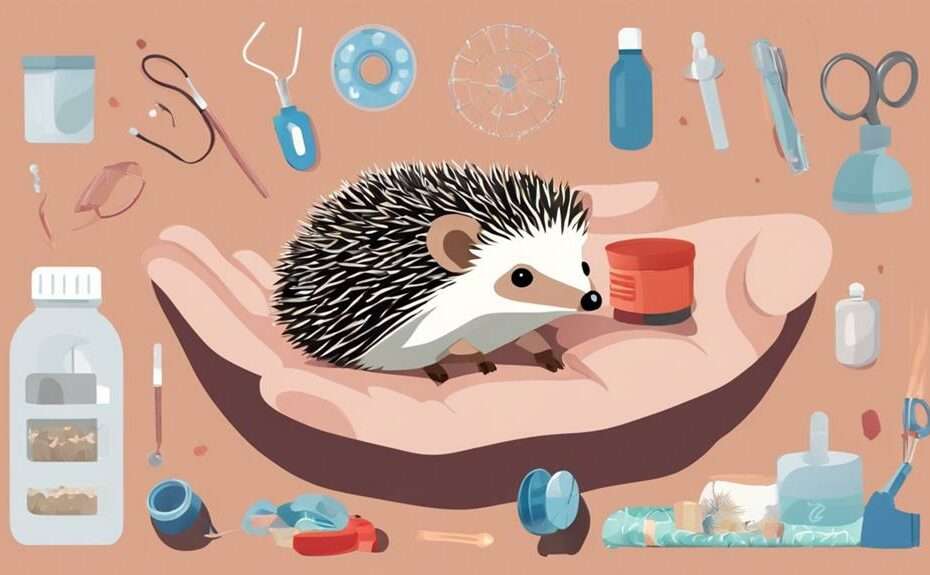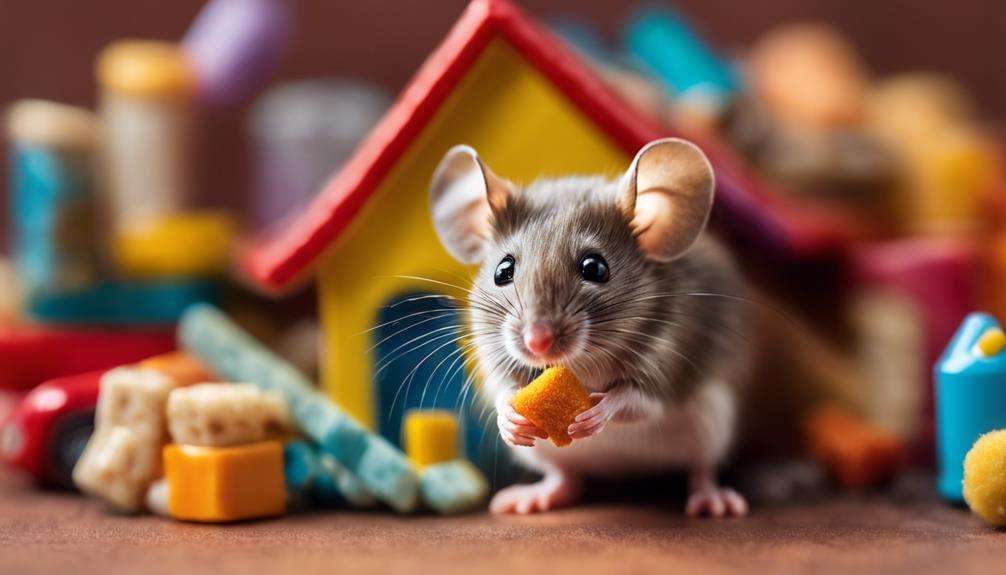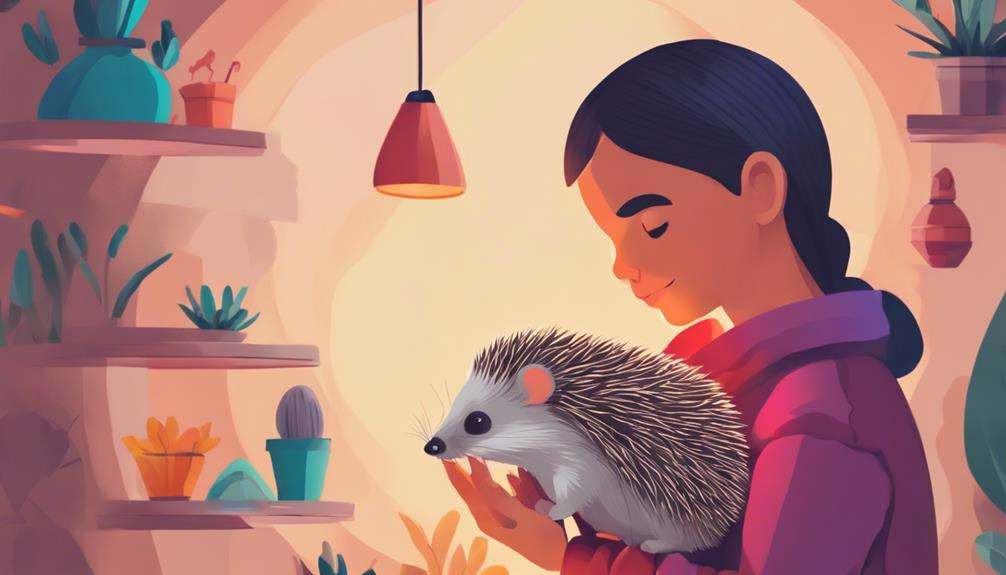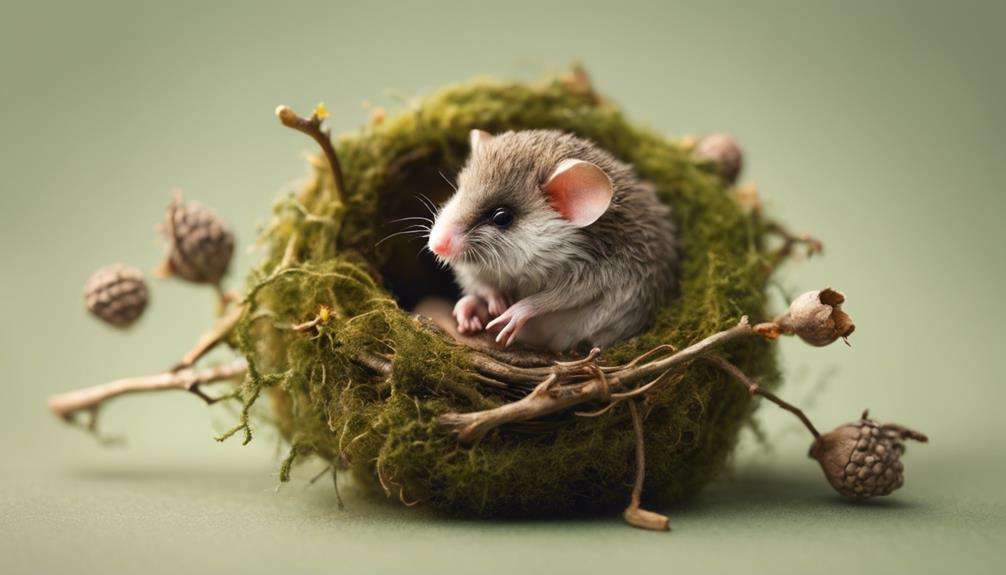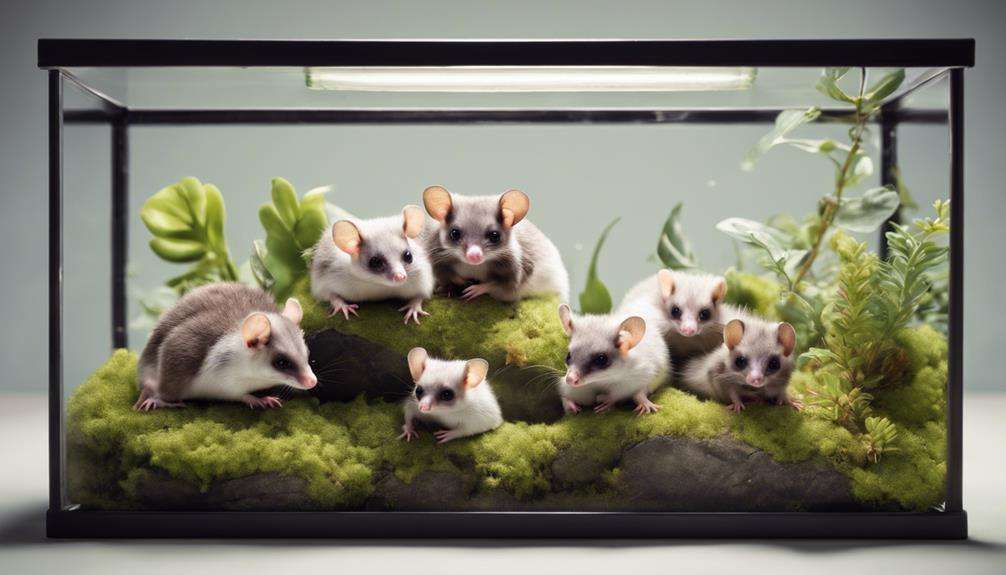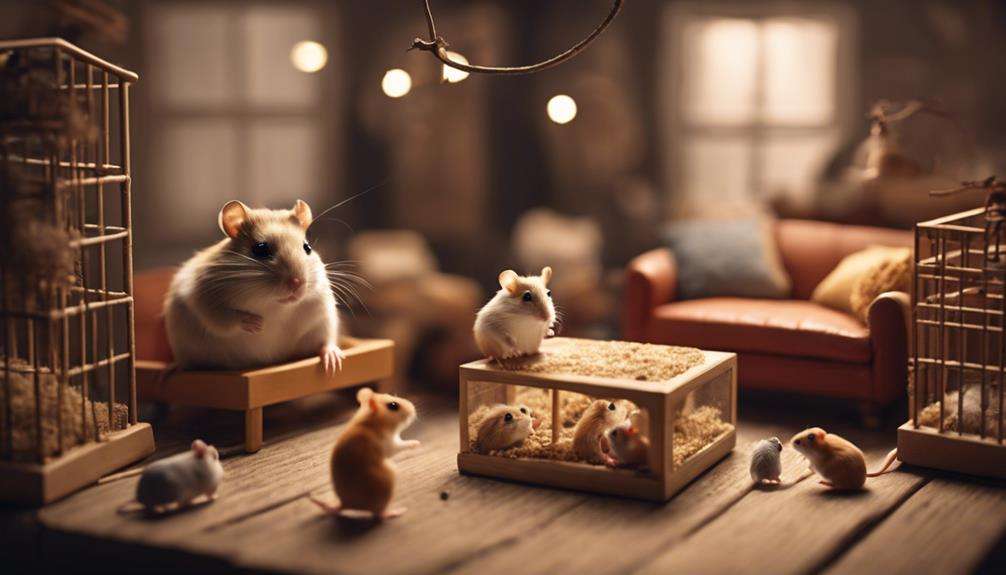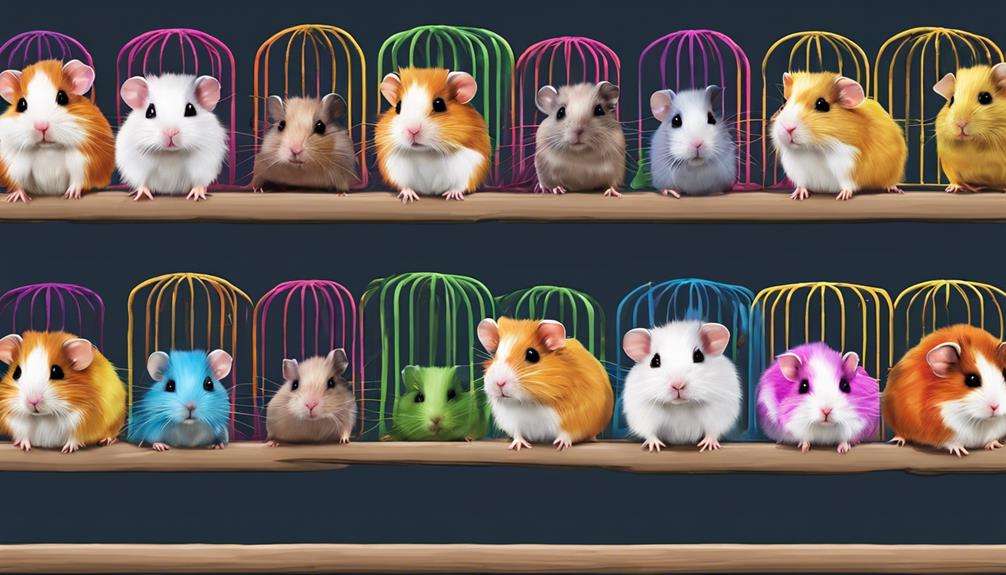So, you think taking care of mini mammals is a walk in the park? Think again. Your new friends might be small in size, but they come with their own set of unique care requirements that can leave even the most seasoned pet owners scratching their heads.
From decoding their mysterious nutritional needs to deciphering the secrets of their socialization patterns, this guide holds the key to accessing a whole new world of mini mammal care. But before you immerse yourself, be prepared to be surprised by what these pint-sized pals truly demand.
Key Takeaways
- Customize housing to species needs for security and comfort.
- Provide a balanced diet rich in essential nutrients for growth.
- Socialize regularly to build trust and prevent stress.
- Prioritize regular vet check-ups and immediate care for health concerns.
Housing and Enclosure Setup
When considering the housing and enclosure setup for your guinea pigs or other small mammals, it's important to customize the dimensions to match the size of the species adequately. Providing a safe environment is vital for their well-being. Make sure the habitat is secure, with proper ventilation and no sharp edges to prevent any injuries. Incorporate enrichment items like tunnels, hides, and toys to stimulate them mentally and physically.
For bedding, opt for materials suitable for the specific species. Guinea pigs, for example, thrive on aspen shavings. Regularly cleaning and maintaining the enclosure is essential to create a healthy living space for your furry friends.
Nutritional Requirements and Diet
To guarantee the best health and development of young small mammals, it's critical to provide a diet rich in essential nutrients tailored to their specific species.
Small animals at a young age have high nutritional requirements, especially during rapid growth phases. While mother's milk offers vital nutrients during infancy, young pets need a diet abundant in protein, calcium, and calories post-weaning to ensure best growth and health.
Offering a species-specific diet is essential to meet the unique nutritional needs of different small mammal species. By providing a well-balanced and species-appropriate diet, you're supporting the growth and development of your young furry companions.
Socialization and Interaction Needs
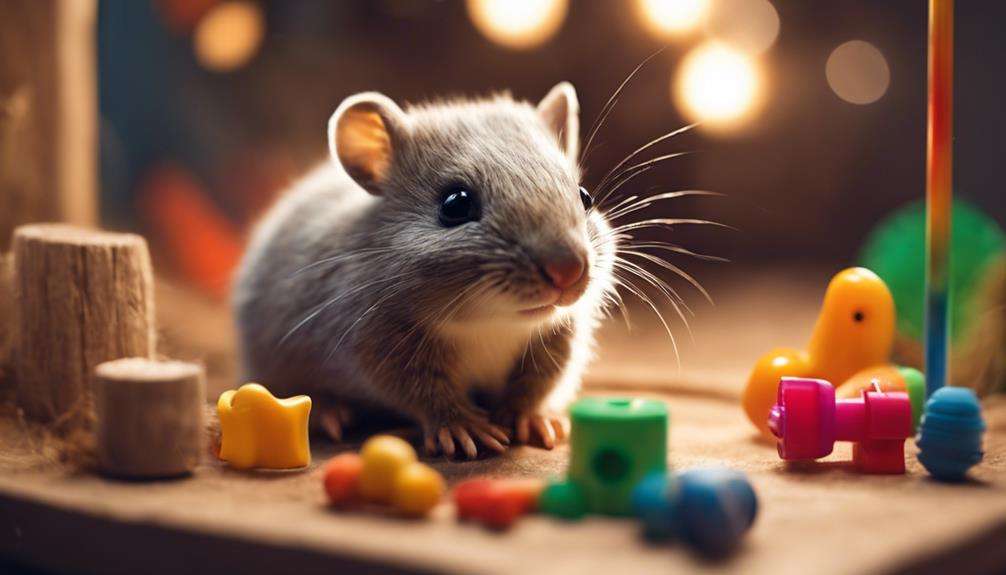
Ensuring that young small mammals receive adequate socialization is essential for their behavioral development and bonding with their owners. Small pets, like hamsters, mice, and gerbils, benefit greatly from interaction with humans. This interaction helps them build trust, reduce stress, and enhance their social skills.
Providing toys, tunnels, and items for exploration can stimulate these small pets both mentally and physically. Regular handling and gentle petting are vital in helping them become accustomed to human touch and interaction.
It's important to set aside time for playtime and supervised exploration outside of their enclosure. This not only prevents boredom but also promotes physical activity in young small mammals. By engaging with your small pets in a positive and interactive manner, you're laying the foundation for a strong bond and a well-adjusted companion.
Health and Veterinary Care
Regular veterinary check-ups play an important role in maintaining the health and well-being of your small mammal companion. Small mammals, such as rabbits, guinea pigs, and rats, have unique physiology that may require specialized veterinary care. It's vital to seek immediate veterinary assistance if you notice any signs of illness or unusual behavior in your small mammal pet. Professional guidance from a veterinarian can help you address common health issues and provide preventive care for your furry friend. Veterinary care for small mammals may include dental check-ups, vaccinations, parasite prevention, and nutritional counseling to guarantee their well-being.
When it comes to small mammals, respiratory infections can be a common health concern. These infections can sometimes be exacerbated by poor ventilation or exposure to drafts in environments like pet stores. Making sure your small mammal has access to fresh food and water, along with a clean and comfortable living space, can help prevent respiratory issues. Regular check-ups with a veterinarian can also help detect and treat any health problems early on, maintaining the overall well-being of your beloved pet.
Enrichment and Playtime Ideas
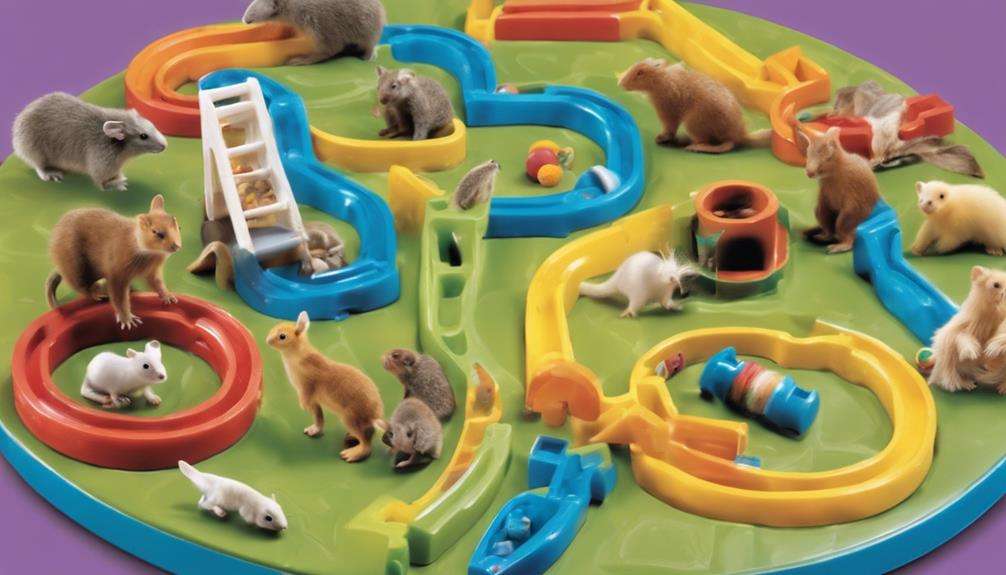
When engaging in enrichment and playtime activities with your small mammal companion, it's essential to keep in mind their natural instincts and preferences for mental stimulation and physical exercise. Enrichment activities such as hiding treats for foraging can stimulate their instincts, while safe toys like tunnels, balls, and chew toys provide the necessary mental and physical engagement.
Rotating toys regularly is critical to prevent boredom and promote exploration in small mammals like rats, hamsters, and guinea pigs. Interactive play sessions not only strengthen the bond between you and your furry friend but also offer them essential exercise. Catering to different species' needs, providing climbing structures for chinchillas and running wheels for hamsters, offers a tailored playtime experience.
Frequently Asked Questions
What Is the Easiest Small Mammal to Take Care Of?
Hamsters are the easiest small mammals to care for. They require minimal grooming, have straightforward dietary needs, and thrive as solitary pets. Their simplicity in care makes them an ideal choice for first-time pet owners.
What Is the Most Low Maintenance Pet?
When looking for a low-maintenance pet, consider hamsters. Their small size and minimal grooming needs make them easy to care for. With a simple diet, safe environment, and some playtime, hamsters can be your ideal, fuss-free companions.
What Is the Hardest Pet to Take Care Of?
Taking care of exotic reptiles can be challenging due to their specific habitat and dietary needs. High-energy dog breeds require constant exercise and mental stimulation. Aquatic fish keeping demands precise water parameters. Bird behavior training necessitates patience and consistency.
What Is the Smallest Pet You Can Own?
In the world of tiny companions, the pygmy mouse lemur steals the spotlight as the smallest pet you can own. Weighing about 30 grams, these miniature creatures from Madagascar are a delightful addition to your family.
Conclusion
To sum up, remember to provide your unique mini mammals with:
- A cozy and comfortable habitat
- A balanced diet
- Plenty of socialization
- Regular veterinary check-ups
- Enriching playtime activities
By prioritizing their well-being and happiness, you'll create a harmonious home for your adorable new friends.
So, take time to tenderly tend to your tiny treasures, and watch them thrive in their tailored environment.
